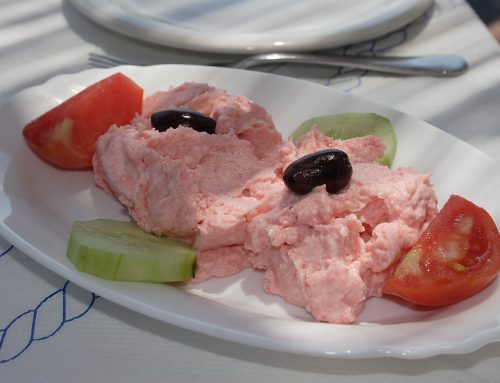Researchers have described the first outbreak of Salmonella in Sweden that had small tomatoes as the likely source of infection.
Eighty-two cases of monophasic Salmonella Typhimurium have been confirmed, with symptom onsets between Aug. 28 and Oct. 29. They were 51 years of age on average, with a range of a few months to 89 years old. The majority were female. Patients lived in 12 of 21 counties in Sweden, with most in the south-western part of the country. Two more people fell ill on Nov. 13 and an investigation into their exposures is ongoing.
A case control study suggested small tomatoes as the outbreak source and a traceback investigation led to a producer in Europe. Results from the investigations are pending.
Salmonella outbreaks traced to tomatoes are rare in Europe, with the only other one being an outbreak of Salmonella Strathcona caused by datterino tomatoes in Denmark in 2011. This is despite tomatoes being a known source of Salmonella outbreaks in the United States.
Link to organic tomatoes
“The results from this investigation highlight the importance of considering vegetables as a possible vector of pathogens traditionally thought to be associated with animal products. Despite not being able to sample the implicated batches of tomatoes for analysis of Salmonella, the epidemiological link to small tomatoes was strong,” said researchers in the journal Eurosurveillance.
“Our subset analysis suggested that small organic tomatoes specifically might be the main source, but organic tomatoes only explained 60 percent of cases. This discrepancy could be explained by recall bias or by contamination of small non-organic tomatoes at the producer.”
In September, public health authorities in Jönköping told the Public Health Agency of Sweden (Folkhälsomyndigheten) of five domestic cases of Salmonella with no obvious epidemiological connection in the previous two days. All illnesses had been caused by an unusual Salmonella strain phenotypically shown to be hydrogen sulfide negative on traditional growth agar medium, i.e. the characteristic black pigmentation of the colonies was lacking.
The next day, officials in Västra Götaland reported a sixfold increase in domestic Salmonella group B cases compared with the same period in the past four years. One day later, a small cluster of seven monophasic Salmonella Typhimurium ST3478 cases was found among isolates from across the country.
They were identified as part of the routine microbial surveillance program where all isolates of Salmonella from domestic infection are sent to the Public Health Agency of Sweden for typing using whole genome sequencing (WGS). By Sept. 17, the cluster had grown to 27 isolates and an outbreak was declared at national level, with an investigation started to identify the source of infection.
Infections may have gone unnoticed
ST3478 is rare in Europe but only Sweden was affected in this large outbreak. Based on responses from nine countries, the specific sequence type had only been seen in the past in a few sporadic cases.
“One possibility could be that just a few batches were contaminated and all of them were sent to Sweden. Another possibility is that because the strain lacked the black pigmentation on traditional growth agar medium, it could have been missed in other countries. Countries should be aware that this ST in combination with its unusual phenotypic feature (hydrogen sulfide negative) could go unnoticed on traditional growth agar medium because of the lack of black pigmentation,” said researchers.
A total of 40 cases responded to the trawling questionnaire and 38 had eaten tomatoes within the incubation period, and at least seven reported the same type and brand. Although incubation time can be six to 72 hours for Salmonella, it can range from 12 to 192 hours in Salmonella Typhimurium outbreaks.
Response rates to the case-control study questionnaires were 45 of 71 among cases and 328 of 384 among controls. Small tomatoes, grilled chicken and shopping at a certain store belonging to a nationwide food retailer owning different chains, were associated with being a case.
“Grilled chicken was not considered to be a true risk factor for being a case in our outbreak as the exposure among cases was low. In addition, the chicken is grilled directly in the supermarket and it would be unlikely that supermarkets from across the country undercooked and improperly stored their grilled chicken over the same time period,” said researchers.
All small organic tomatoes sold at the retail stores were delivered by one wholesaler in Sweden and sold under a private label. Deliveries at the end of August and beginning of September showed product was produced and packed by one company in an EU country.
Tomatoes bought by patients within a few days before symptom onset likely came from either or both of two deliveries arriving in Sweden on Aug. 24 and 27. No leftover small tomatoes available from patients’ households were from these deliveries. Two samples from other deliveries were negative for Salmonella spp. There was no recall because tomatoes from the implicated deliveries were no longer on the market.
Source: Food Safety News





